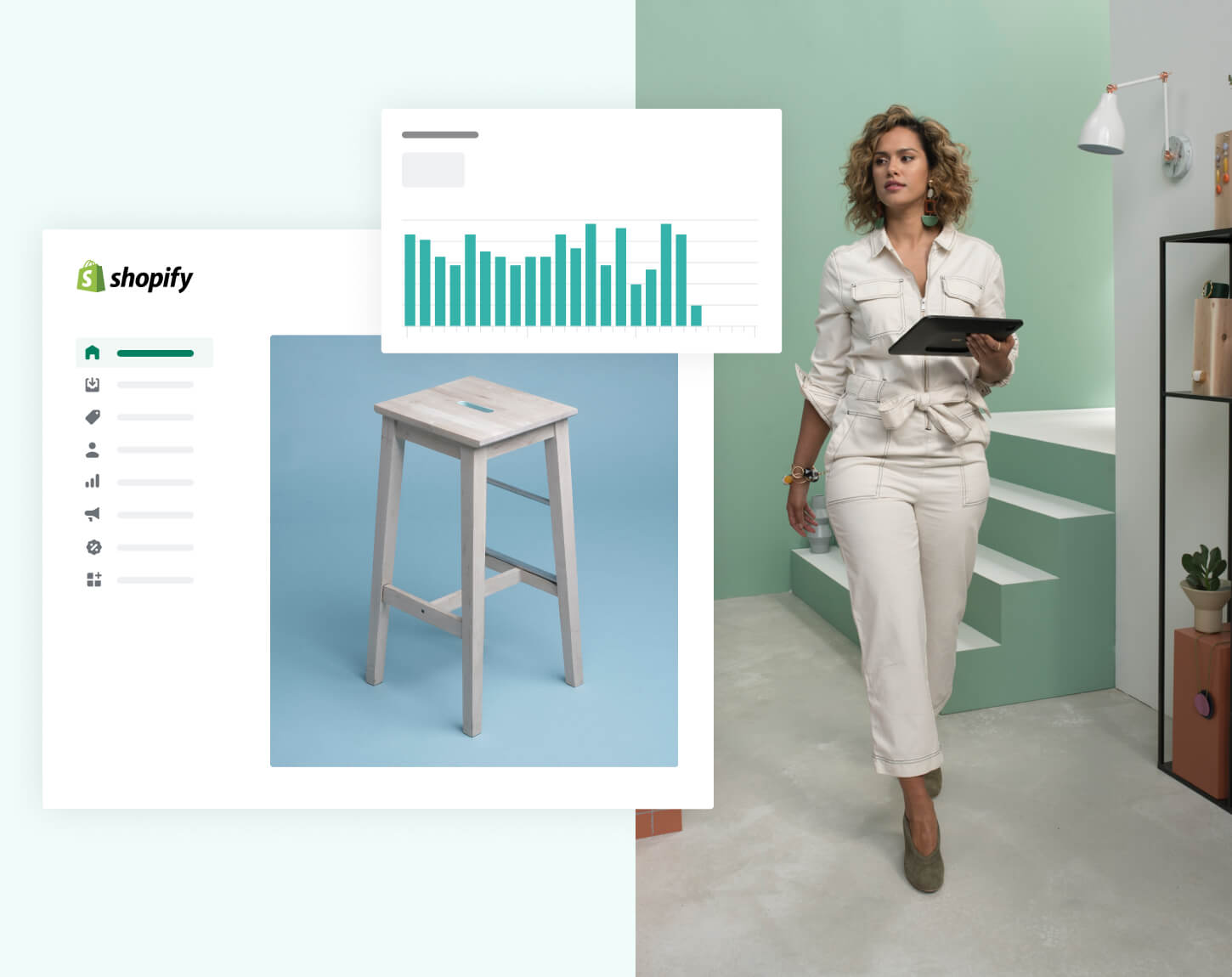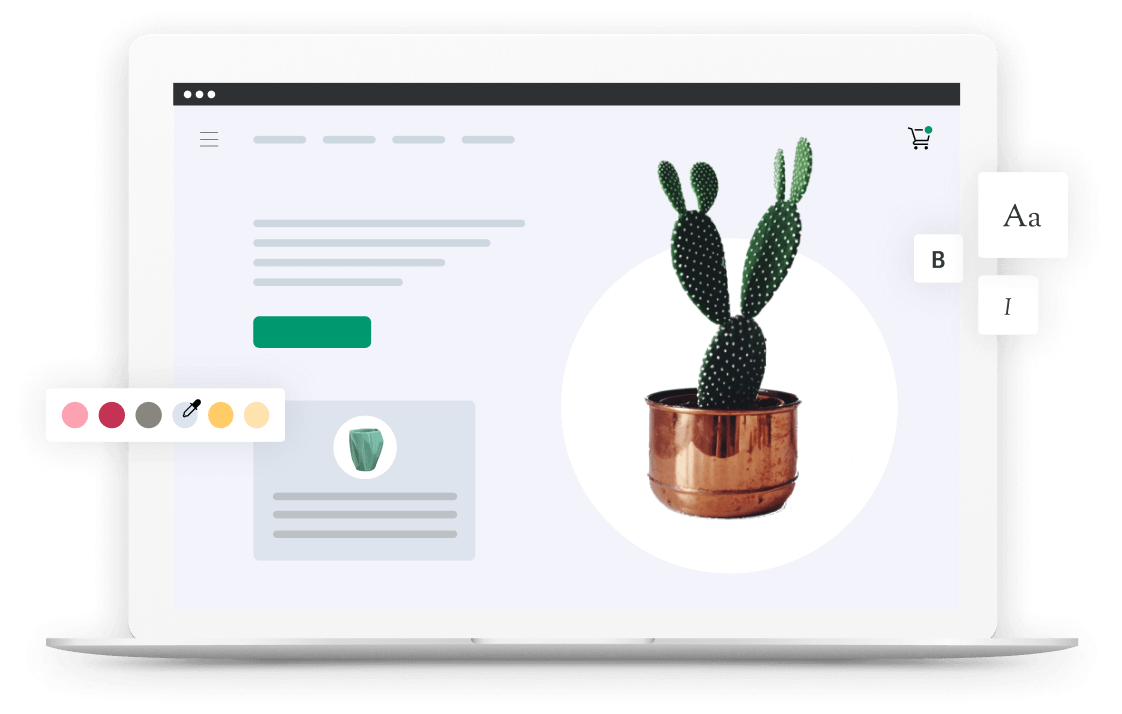Shopify vs HostGator
Shopify vs HostGator 2025 - Which Web Hosting is Right for You?
Shopify provides merchants with cloud-based hosting for all merchants so you can count on a reliable uptime. All Shopify merchants get unlimited bandwidth and products.
You agree to receive Shopify marketing emails.

Why Choose Shopify vs Hostgator
| Key features | HostGator | Shopify |
|---|---|---|
| Reliable uptime | HostGator | Shopify |
| Cloud hosting for all | HostGator | Shopify |
| Included subdomain | HostGator | Shopify |
| Free trial | HostGator | Shopify |
| Unlimited bandwidth | HostGator | Shopify |
| Up to 2,500 free emails | HostGator | Shopify |
| Mobile responsive themes | HostGator | Shopify |
| International support | HostGator | ShopifyIn 21 Languages |
| Unlimited products | HostGator | Shopify |
| Unlimited data | HostGator | Shopify |
| PCI compliant | HostGator | Shopify |
| Free SEO tools | HostGator | Shopify |
| Free SSL certificate | HostGator | Shopify |
| Unmetered bandwidth | HostGator | Shopify |
| No transaction fees | HostGator | Shopify |
| Detailed reporting | HostGator | Shopify |
Start selling with Shopify today
Try Shopify for free, and explore all the tools and services you need to start, run, and grow your business.

10 Things Shopify Can Do vs HostGator
Servers rarely crash
Shopify has a reliable up time, which results in servers rarely crashing. Your website is hosted on a cloud server which makes it less likely for there to be downtime. While you can find cloud hosting on Hostgator, most people tend to purchased shared hosting. As a result, if there’s an influx of traffic on a hosting server you’re sharing with other websites, it’s possible and likely that with too much traffic your site will go down.
Free subdomain
When comparing Shopify vs Hostgator, Shopify offers a forever free subdomain with each subscription. You can choose to run your website on this subdomain for years. Your website will be yourbusinessname.myshopify.com. Since Shopify has great brand recognition, this subdomain can add trust. If you decide to purchase your own domain name you can do so using Shopify’s Domain Name Generator. Hostgator offers a free domain name for one year only.
Free trial
Unlike Hostgator, Shopify provides all merchants with a risk-free free trial. During this free trial, you won’t be charged. If you decide Shopify isn’t right for you, you can close your Shopify store in the admin without needing to contact support. Closing your Shopify store is hassle-free and can be done in one click. During your two-week free trial, you’ll be able to customize your website, add products, and even make your first sale. On Hostgator, you need to pay upfront and have up to 45 days for a money back guarantee. You’ll need to fill an online cancellation form and connect with support to terminate your contract with Hostgator.
Unlimited bandwidth
Shopify provides unlimited bandwidth to all merchants on any plan. Hostgator’s bandwidth is unmetered like Shopify’s. On Shopify, you can both download and upload data as much as needed with no time limits.
Built-in email marketing
Both Shopify and Hostgator allow you to create a custom email address for your website. Shopify goes beyond just this to allow you to send up to 2,500 emails a month to your customers for free. You’ll be able to design, send, and analyse every email you send using Shopify Email. You’ll find ready-made designs to choose from that’ll be sent from your own domain so you can earn sales promoting your products.
Premium theme designs
Both Shopify and Hostgator provide their customers with ready-made theme templates. All of Shopify’s themes are mobile-responsive, modern, and easy to customize. You’ll be able to make changes to typography, colors, images, and more using Shopify’s easy to use theme editor. Shopify’s Theme Store includes both free and premium versions of templates to suit both your budget and needs.
More pricing flexibility
Both Shopify and Hostgator have tiered pricing plans allowing you have new needs met as your business grows. Hostgator features three pricing plans for both shared hosting and cloud hosting. Shopify offers various pricing plans giving you more flexibility and features as your business needs evolve.
Fully hosted
Shopify’s hosting is reliable and fast. On Shopify, you'll have unlimited email forwarding, automatic updates, your own custom domain, and a content delivery network. Shopify provides unlimited bandwidth. There are no extra fees for hosting needed when on a Shopify subscription.
International support
Shopify support is available 24/7, no matter where you are. You’ll also have access to help docs, webinars, blog posts, and online courses to guide you along the way. Hostgator’s support team is only based in the US.
Servers around the world
All of Shopify’s servers are located around the world to help provide you with the best uptime, connection, and speed for your website. Hostgator’s servers are mostly based in the US in Provo, Utah, Houston, and Texas.
Why Merchants Prefer Shopify vs Hostgator
Built for businesses of all sizes
Shopify is built for businesses of all sizes. From a small but growing business to a large enterprise with millions of monthly website visitors. The reliability of your uptime won’t be affected based on how much traffic your website receives. Hostgator best serves small businesses with less volume. On shared hosting, other websites getting high volumes of traffic can negatively impact your uptime. If you have a large enterprise, Shopify is a reliable choice.
Unlimited products on all plans
On Shopify, you can add an unlimited number of products no matter what plan you choose. Since you also have access to unlimited bandwidth, there are no data uploading issues that will affect you from increasing the amount of inventory you add to your website. On Hostgator, there are limits to how much you can upload. You can only upload 100,000 files on Hostgator. If you have over 250,000 files uploaded you’ll have violated Hostgator’s Terms of Service, which means you could get suspended.
No upselling
When looking at Shopify vs Hostgator, Shopify doesn’t upsell you after you become a customer. You won’t have sales reps asking you to change your plan. Hostgator, on the other hand, will try to upsell when you ask for support. There are various upsells Hostgator tries to sell to their customers which has caused an increase in complaints.
PCI-compliant
All Shopify stores are PCI compliant by default, which is the security standard required for those handling credit and debit card information. Shopify is certified Level 1 PCI DSS compliant, which extends to your Shopify store too. To maintain compliance, Shopify does annual on-site assessments for compliance to ensure your website is secure. Hostgator supports PCI compliance but isn’t PCI compliant by default.
Grow within your plan
On Shopify you can grow your business as big as you need to, to meet your customers’ needs. While you can gain access to new features with plans catered for bigger businesses, you don’t need to change your plan account. You can grow your business on any plan since Shopify hosting is cloud-based for all merchants. On Hostgator, you’ll likely need to upgrade your hosting package as your business generates higher volume of traffic, particularly on shared hosting.
Cloud hosting for all
Shopify provides cloud hosting for all merchants. While you can get access to cloud hosting on Hostgator, the shared hosting is a popular choice for most people, which can cause some issues as your website’s popularity increases.
We’ve been able to build something in 3 years that a lot of brands haven’t actually gotten to in 10 years.
Learn More About Shopify

Compare Shopify
See how Shopify compares to other platforms

Shopify Community
Learn from business owners on the Shopify forums

Shopify Help Center
Find answers to all your Shopify questions fast
Start selling with Shopify today
Try Shopify for free, and explore all the tools and services you need to start, run, and grow your business.
FAQs
Which is better: Shopify vs Hostgator?
Shopify provides cloud hosting to merchants with unlimited bandwidth and products. Ultimately, people turn to Shopify for more than hosting but also as an ecommerce website builder.
How to connect Hostgator domain to Shopify
To connect your Hostgator domain to Shopify you’ll need to change your DNS records on Hostgator. Since Shopify provides cloud hosting to all merchants, you won’t need to continue using Hostgator for hosting services.
Page last updated: May 12, 2021
What’s the best commerce platform for you?
Learn why thousands of businesses migrate to Shopify every year.
